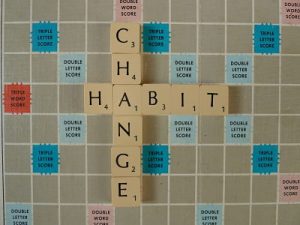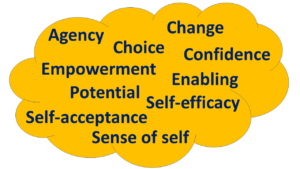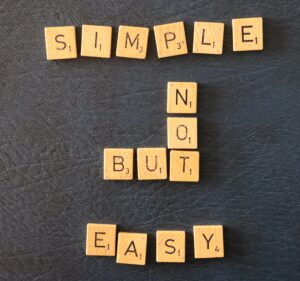
I was recently asked a great question by one of my clients: “How do I know if what I’m doing is a ‘bad’ habit?”
If we think of habits, we often initially come up with things like smoking, or a tendency to eat or drink more than we believe we ‘should’. We might think that, personally, we have one or two habits and, often label these as ‘bad’. From an Alexander perspective, however, we see habits everywhere; we’re interested in all of them and we aren’t (or try not to be!) judgemental about them. The way in which we walk, sit, speak, text and, of course, the way we think, will have a large habitual component for us all.
Some of what we do is conscious and some is sub-conscious. Habits fall into the latter category. They allow us to get on with doing everyday tasks while attending to what we tend to think of as more important. So, when I’m walking down the street I could be on ‘automatic pilot’, engrossed in my inner thoughts, or a phone conversation. Alternatively, I could be appreciating my surroundings and enjoying the sensations and experience of walking, even while having the phone conversation. This greater degree of awareness of myself and my environment, while still being able to attend to the task in hand, comes through practising the Alexander Technique. This doesn’t mean that I’m going to be micro-managing myself, trying to figure out how to take each step, or to ‘get the walking right’. Rather, I can use my Alexander skills to guide the walking and reduce habitual interferences in it, giving greater ease of movement and more enjoyment of the present experience.
Not all habits are ‘bad’ but here are two examples of powerful habits that are unlikely to be doing us any favours. The first is our unintentional tendency to interfere with our natural movement coordination. This is now almost universal among adults in industrialised societies. It consists of a tendency towards contracting (‘pulling down’), rather than remaining more expansive in stature and movement (see the Spring in your step post). Learning and practising the Alexander Technique enables us to rediscover our natural poise, posture, and ease of movement.
The second example is our habit of fixating on the immediate goal (‘end-gaining’), rather than taking care of how we go about achieving it. From an early age, our culture encourages us to accredit importance to our achievements (small or large) – we learn to prize the outputs, the ‘what’ rather than the ‘how’. When we practise the Alexander Technique we prioritise looking after ourselves as we work towards our goals and, as a result, we usually find an added benefit of better outcomes.
Through the Alexander Technique we discover how to shine light on our habits by gradually becoming more self-aware. We may find that we are very comfortable with many of our habits but it’s also likely that there will be some aspects of ourselves that we’d like to change. The Alexander Technique gives us a powerful and gentle method for self-change.
So, coming back to my client’s question – how do I know if my habit (the way I’m doing what I’m doing) is likely to be causing me any issues (short or long term)?
With help from an Alexander teacher, we begin to notice when we’ve more of a tendency towards contraction (‘pulling down’) and how we can remain more expansive. We notice if an action is a bit jerky and effortful or if we can allow it to be more smooth and easy. We’ll become more aware of repetitive thought patterns and be able to lessen these if they’re getting in the way. We may also notice when we begin to gain more enjoyment from simple everyday activities. There will probably always be some element of habit in what we do or think – it’s just a question of whether we allow this to govern our life, or if we can enable ourselves to have other possibilities.









